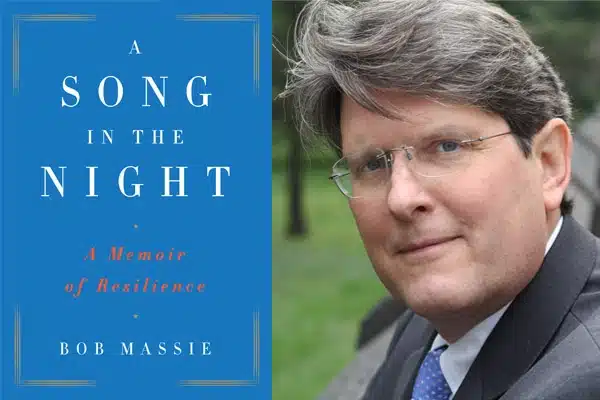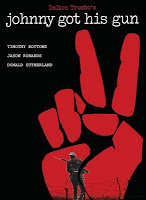Memorial Day
Memorial Day with a Memoir
I often think of Memorial Day as a time not only to think of those who died serving our country, but of those veterans from the hemophilia community, who died from HIV, or who are still fighting the good fight, so that our sons could live. Their infections and/or deaths expedited the call to identify the virus that stalked the blood supply, and to find treatment fast.

Bob Massie is one of those. And he’s written about his experiences in a new autobiography called A Song in the Night: A Memoir of Resilience (Doubleday, 287 pages, $24). I urge you to buy it and read it. It’s the newest book in the hemophilia marketplace, and it is a gem.
You may know of Bob from one of several places; he’s a rolling stone, despite his health issues. Episcopal priest, author, researcher, politician, human-rights activist, father of three, nonprofit leader. You may recognize him as one of the people profiled in 2010’s documentary Bad Blood. You also may have met him first like I did, through his parents’ book Journey, from 1973. Journey was truly the first book about hemophilia, told in alternating chapters from the parents, Pulitzer-Prize winner Robert K. Massie and then-wife Suzanne Massie. This stunning book put hemophilia on the map, and revealed painstakingly what it was like in the 1960s and 70s to raise a child with this rare genetic blood disorder.
Bob now shares his own perspective on his life and also continues where Journey left off. Without a shred of self-pity, he shares the searing pain that left him crippled as a child; the loneliness of being left behind and unable to participate in school or playground activities like the other boys. Not surprisingly, but admirably, he turned his suffering into something greater, something that would eventually benefit many. Bob became a crusader against social injustice in its many forms (his influences reached South Africa at one time) and despite his physical limitations, he achieved more than an average person would, without any limitations. His list of accomplishments is stunning, leaving the reader feeling a bit inadequate: if a person who spent years ill in bed could do all this, what’s our excuse?
Bob has excelled in many areas and following a successful lived transplant two years ago, is going stronger than ever as president of a nonprofit, following a year of campaigning for US Senate. Despite spending years in a drug-induced wait for a new liver, watching life pass him by, he is back, strong and focused, and continuing still to make a difference. A Song in the Night is less a memoir of what life did to him, but rather how he has made a life despite so many hardships and setbacks. Bob references his faith often, which has been unshakable and contributed to his desire to overcome his illnesses and in turn, help others.
Like our war veterans, Bob Massie has served on the front lines, earned his battle scars, works to make the world safer and better, and above all, is inspiring. He inspires us, I think, to see the challenges we face, however hard, as perhaps a calling from Above, a way to persevere and then to serve our fellow humans, with love. In one passage of the book, Bob describes his ordination as a deacon. The bishop looked him straight in the eye and told him his responsibility, his mission, was “to serve all people, particularly the
poor, the weak, the sick, and the lonely.” Bob has accomplished all this, and more.
This is a well-written book, full of history, personal narrative and profound inspiration. We should be proud of Bob Massie in our hemophilia community; he has overcome, with his unconquerable soul.
Memorial Day of a Different Sort
Today is Memorial Day in the US, where we remember and honor those brave soldiers who fought in wars to protect our country and liberate others. It would be hard to find a family who does not have someone in it who gave their life for their country. I have at least one in my family: my uncle Jim Morrow, my father’s brother, who died in 1967 in Viet Nam. We find ways to remember our brave heroes: Jim has a place of honor on the Vietnam Wall in Washington DC, and on the virtual Wall, on line.
This week we will also remember heroes from a different war: HIV.
On June 2, PBS will at last broadcast Bad Blood: A Cautionary Tale, by Marilyn Ness. This emotional, deeply moving documentary portrays life with hemophilia before the “war,” when there was no blood clotting factor. This in itself can bring you to tears, watching children hobble about on crutches, suffering with joint bleeds, in hospital beds when they should be out in the sunshine playing. Then, the miracle of factor, and how it transformed lives from being crippled to being freed. Factor liberated all the children from this sad fate.
Who could have ever, in their wildest dreams, known that in the late 1970s a virus, unlike anything the world had ever seen, lurked in the nation’s blood supply? This is the stuff of science fiction, not reality. But it became our reality. Thousands were infected, and thousands died horrible deaths.
I know personally almost many of the heroes in the film: Dana Kuhn, Bob Massie, and Glenn Pierce. Bob says, this “is the story of a failed medical system, of companies and politicians putting profits before people, and of patients being kept in the dark about their very lives… It is the story of a critical piece of American history, when thousands of patients, doctors, and families came together to repair a broken system.”
Here is also Bob’s statement, which best expresses the heroism evident in those infected: “When I learned, more than twenty-five years ago, that my lifesaving injections had exposed me to a dangerous virus, I made the resolution to continue living each day, always staying true to myself and those I loved, and never giving up hope. I was lucky, and overcame them both with the help of world-class medical care and the love and support of my friends and family.” Bob is now running for US Senate.
But thousands of others were not so lucky. Like fallen soldiers in a devastating, insidious war, they are now remembered and honored in Bad Blood, which memorializes their struggle, their sacrifice and their legacy. Bad Blood is their local memorial park, their Viet Nam wall, their Iwo Jima monument. Clearly, their deaths, and the determined action of the survivors to seek justice and a change in the blood collection system and factor production, have made hemophilia treatments– and our entire blood banking syste–safer.
I cannot stress strongly enough to watch the movie. If you want to know the psyche of the US hemophilia community, understand its anguish and advocacy and determination, you must see this movie. If you want to see true American heroes, watch this movie. It’s not just a documentary, but a memorial to fallen soldiers.
Bad Blood is showing on WGBH at 10AM, 4PM, 6PM, and 11PM on June 2nd. Please forward and share this with your friends, family, community members, and anyone in the medical field.
Great Book I Just Read
Johnny Got His Gun
by Dalton Trumbo 
You may have, like me, read this book in high school. It’s worth another read. Written in 1959, the novel was actually written in 1938 and published just after the start of World War II. This is the story of Joe Bonham, a youjng American WWI soldier who is horrifically disfigured and disabled. Told only from Joe’s thoughts and memories, Joe slowly becomes conscious and then must decipher what is happening to him. He realizes slowly he has lost all his limbs and his face; how does he cope with this horrific realization? All he has left is his skin and ears as sensory organs; he struggles to control his panicky mind.
Memories of home and family flood him; he reflects on why he went to war. Trumbo has a message, one that not all Americans in these times may want to hear. But we grow as humans when we read what we don’t always agree with; the horror of war, its terrible human cost. It can be viewed as a book about war and its effects (think of the thousands of scarred soldiers returning now; for second year in a row, the US military has lost more troops to suicide than to combat in Iraq and Afghan) or simply about the strength of the human spirit and surviving unimaginable loss in any field, at any time. This book is worth a read, though there are problems with run on sentences, grammar, etc. Two stars.


